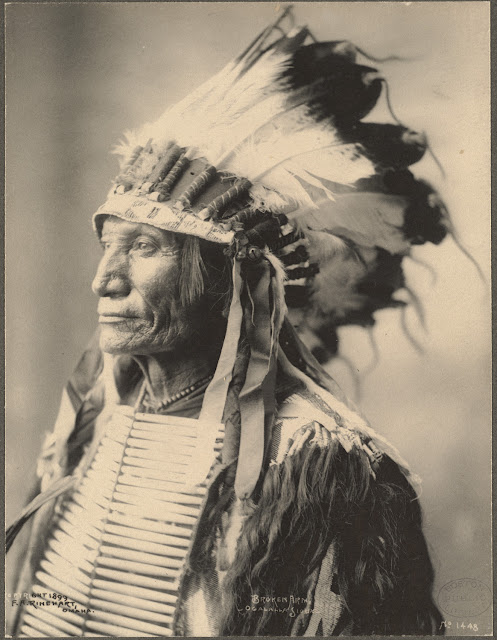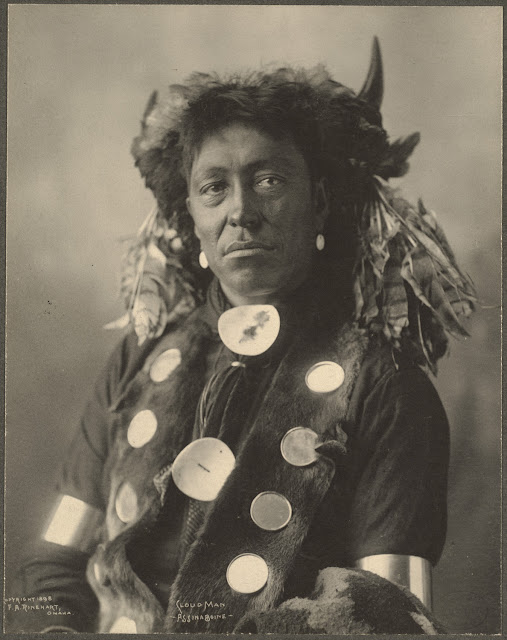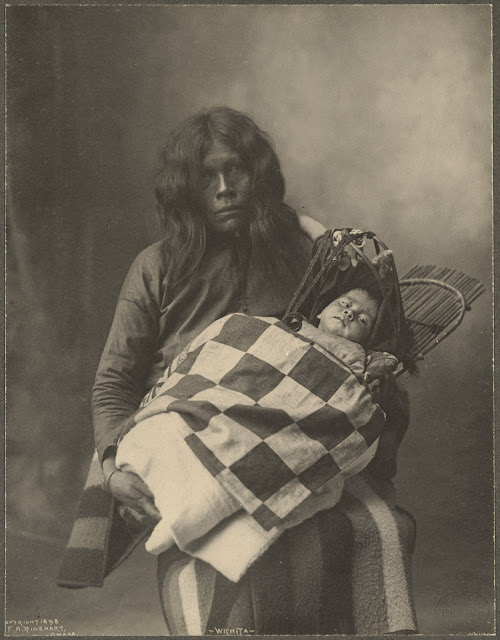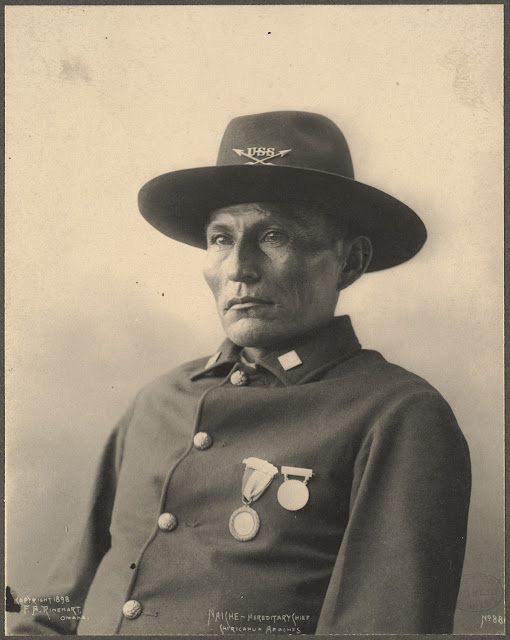Frank Albert Rinehart (1861-1928) was an American artist famous for his photographs depicting Native American personalities and scenes, especially the leaders and members of the delegations who attended the 1898 Indian Congress in Omaha.
Rinehart was born in Lodi, Illinois. He and his brother, Alfred, moved to Colorado in the 1870s and found employment at the Charles Bohm photography studio, in Denver. In 1881 the Rinehart brothers formed a partnership with famous Western photographer William Henry Jackson, who had achieved widespread fame for his images of the West. Under Jackson's teachings, Rinehart's perfected his professional skills, and developed a keen interest in Native American culture. Frank Rinehart and Anna, the receptionist of Jackson's studio, married and in 1885 moved to Nebraska. In downtown Omaha, Rinehart opened a studio in the Brandeis Building, where he worked until his death.
In 1898, and in occasion of the Indian Congress held in conjunction with the Trans-Mississippi and International Exposition, Rinehart was commissioned to photograph the event and the Native American personalities who attended it. Together with his assistant Adolph Muhr (who would later be employed by the famous photographer Edward S. Curtis), they produced what is now considered "one of the best photographic documentations of Indian leaders at the turn of the century"
Rinehart and Muhr photographed American Indians at the Indian Congress in a studio on the Exposition grounds with an 8 x 10 glass-negative camera with a German lens. Platinum prints were produced to achieve the broad range of tonal values that medium afforded [via wiki]
*click on images for a larger more splendid view*
"The dramatic beauty of these portraits is especially impressive as a departure from earlier, less sensitive photographs of Native Americans. Instead of being detached, ethnographic records, the Rinehart photographs are portraits of individuals with an emphasis on strength of expression. While Rinehart and Muhr were not the first photographers to portray Indian subjects with such dignity, this large body of work which was widely seen and distributed may have had an important influence in changing subsequent portrayals of Native Americans"
~Tom Southall, former photograph curator at the University of Kansas' Spencer Art Museum
500 Nations Documentary on Native Americans: An exploration of the various Native American nations and their fall to the European conquerors.
"...probably the single best examination of Native American history and culture ever committed to film." ~ John J. Puccio
Rinehart was born in Lodi, Illinois. He and his brother, Alfred, moved to Colorado in the 1870s and found employment at the Charles Bohm photography studio, in Denver. In 1881 the Rinehart brothers formed a partnership with famous Western photographer William Henry Jackson, who had achieved widespread fame for his images of the West. Under Jackson's teachings, Rinehart's perfected his professional skills, and developed a keen interest in Native American culture. Frank Rinehart and Anna, the receptionist of Jackson's studio, married and in 1885 moved to Nebraska. In downtown Omaha, Rinehart opened a studio in the Brandeis Building, where he worked until his death.
In 1898, and in occasion of the Indian Congress held in conjunction with the Trans-Mississippi and International Exposition, Rinehart was commissioned to photograph the event and the Native American personalities who attended it. Together with his assistant Adolph Muhr (who would later be employed by the famous photographer Edward S. Curtis), they produced what is now considered "one of the best photographic documentations of Indian leaders at the turn of the century"
Rinehart and Muhr photographed American Indians at the Indian Congress in a studio on the Exposition grounds with an 8 x 10 glass-negative camera with a German lens. Platinum prints were produced to achieve the broad range of tonal values that medium afforded [via wiki]
*click on images for a larger more splendid view*
~Tom Southall, former photograph curator at the University of Kansas' Spencer Art Museum
500 Nations Documentary on Native Americans: An exploration of the various Native American nations and their fall to the European conquerors.
"...probably the single best examination of Native American history and culture ever committed to film." ~ John J. Puccio
Movie Metropolis














































